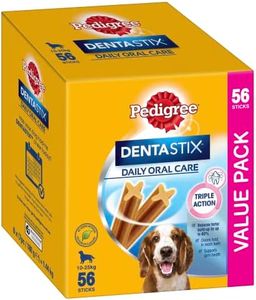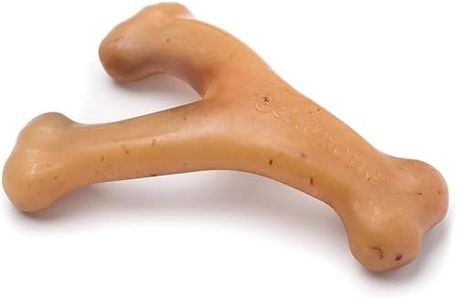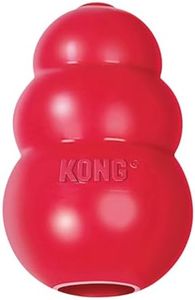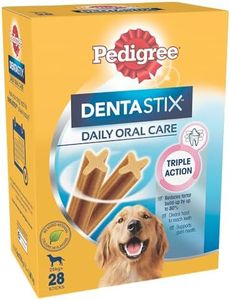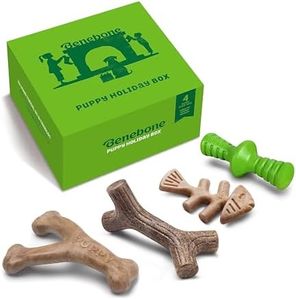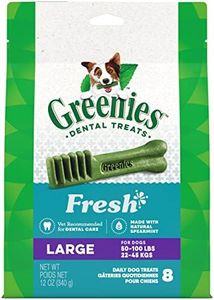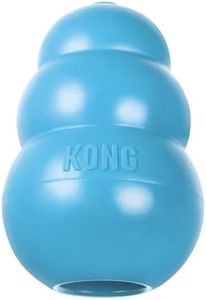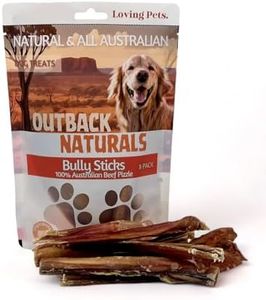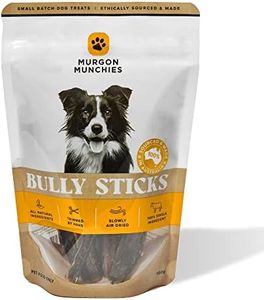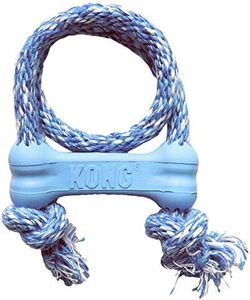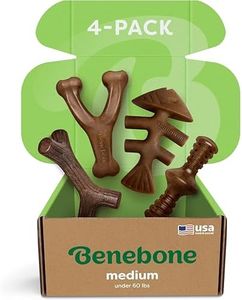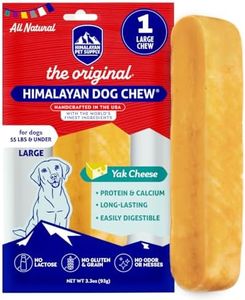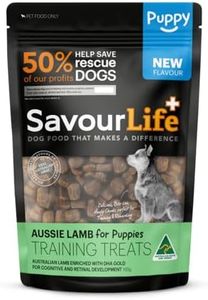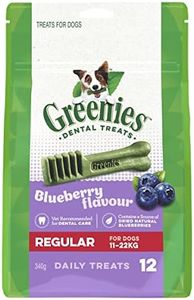We Use CookiesWe use cookies to enhance the security, performance,
functionality and for analytical and promotional activities. By continuing to browse this site you
are agreeing to our privacy policy
10 Best Puppy Chews
From leading brands and best sellers available on the web.By clicking on a link to a third party's website, log data is shared with that third party.
Buying Guide for the Best Puppy Chews
When selecting puppy chews, it's important to focus on safety, suitability for your puppy’s age and size, and the specific needs of your dog’s breed and chewing habits. Puppy chews help with teething discomfort, promote dental health, and provide entertainment for your pet. Choosing the right one can prevent destructive chewing and keep your puppy healthy and happy. Always supervise your puppy during chew time to avoid choking hazards or swallowing large pieces.MaterialThe material of a puppy chew determines its durability, safety, and how enjoyable it is for your puppy. Chews can be made from natural sources like rubber, nylon, rawhide, or even edible ingredients. Harder materials like nylon might last longer but can be tough for very young or small puppies, while softer rubber or edible chews may be easier to handle but get destroyed faster. For teething puppies, softer materials are usually best to ease discomfort, while heavier chewers might prefer tougher options. Always check that materials are non-toxic and free from harmful chemicals.
Size and ShapeSize and shape are vital for safety and effectiveness. A chew that's too small can be a choking hazard, while too large may be hard for your puppy to carry or bite. Shapes with interesting textures or ridges can stimulate your puppy and help clean teeth, while simple designs are good for beginners. To pick the right size and shape, consider your puppy’s current mouth size and chewing habits, and choose one that they can comfortably hold but not swallow whole.
EdibilitySome chews are designed to be eaten, while others are purely for play and dental health. Edible chews can be digestible treats that also soothe teething pain, but should be given in moderation to avoid digestive issues. Non-edible chews last much longer but must be monitored for bits breaking off. If your puppy loves to eat everything, edible chews can be a safe option, whereas for puppies who just enjoy gnawing, a durable non-edible chew might be better.
FlavorFlavor can make chews more enticing and keep your puppy engaged, especially if they're fussy or teething. Chews might be flavored with things like chicken, beef, peanut butter, or be unflavored. If your puppy loses interest in ordinary toys, a flavored chew can provide more motivation. Be mindful of potential allergies and always check that flavors are from safe, pet-friendly sources.
Dental BenefitsMany chews are designed to provide dental health benefits by scraping away plaque and massaging gums during chewing. Chews with special textures or ridges are most effective for keeping teeth clean. If your primary concern is your puppy's dental health, choose chews specifically designed for this purpose, and look for options recommended by veterinarians for oral care.
DurabilityDurability refers to how long the chew will last before it needs to be replaced. Puppies with strong jaws or aggressive chewing habits will need more robust chews, while gentle chewers can enjoy softer, less durable options. If you want something that survives daily use for weeks, go for higher durability; for puppies still learning to chew, a less durable but gentler chew might suffice.
